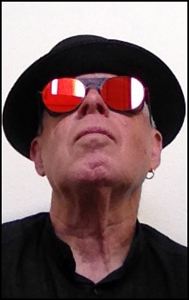by Mike Wistow
BRUCE COCKBURN – Crowing Ignites (True North Records TND 737)
Bruce Cockburn, legendary Canadian artist, released Crowing Ignites on September 20th. This is Cockburn’s 34th album and is made up of eleven new compositions – unusually, all instrumental. In 2005, Cockburn released a previous all-instrumental album, Speechless, which earned him a Canadian folk Music award for Best Instrumentalist. I’ve just re-listened to it – I prefer Crowing Ignites, which tells you how good I think this is.
I approached this review with some trepidation – how do you describe the mountain tops of guitar playing when you’re barely in the foothills? It was pointed out to me that, in comparison to Cockburn’s finger picking style, most of us are in the foothills and I really should just get on with it. Here goes.
The video linked below shows Cockburn playing ‘Bardo Rush’, the opening track off the album. The New York Times has described him as having “the hardest working right thumb in show business”; you can see – more importantly, hear – from the video that, true as that may be, the rest of the digits are pretty hard working as well. On first listen I was wondering if there were two guitars at places; as you can see there’s one and the thumb drives the rhythm over a melody, part picked, part strummed and so smoothly played that you can only watch in awe while the tune pulls your emotions into a slightly uncertain location while the rhythm holds them reassuringly stable.
The album moves on to ‘Easter’, more relaxing, written on Easter Sunday, beginning with a mood of calm joy, bringing you home to an easy place – before it leaps into more energetic musical celebration. ‘April In Memphis’ (written on Martin Luther King Day and named for the day/month and city he was shot) is emotionally similar, but finishes with the haunting hint of chimes we’ll hear later on the album.
The style changes a little for ‘Blind Willie’, guitar and dobro swapping notes on a track named after the gospel blues player Blind Willie Johnson. ‘Seven Daggers’ moves the sound again, this time to a more spiritual feel, not least because of the way the guitar plays against the kalimba. ‘The Mt Lefroy Waltz’ is smooth jazz.
‘Sweetness and Light’ is a jauntily finger-picked tune, while ‘Angels In The Half Light’ which follows it is more emotionally mixed (as you might surmise from the title), that driving thumb again, deep notes, bent in places, and fighting with the higher pitched cheeriness – which never quite wins the tune and thus leaves an uncertain equilibrium. ‘The Groan’ is a return to a more bluesy, hand-clapped style – the title presumably because it was written about the aftermath of a school shooting.
The penultimate ‘Pibroch: The Wind In The Valley’ makes the guitar sound like highland bagpipe – Cockburn is Canadian but there is Scottish heritage and he has said “I’ve always loved pibroch, or classic bagpipe music, it seems to be in my blood. Makes me want to sip whiskey out of a seashell on some rocky headland”. ‘Bells of Gethsemane’ closes the album, more than seven minutes long, holding the attention, some guitar work which touches on Scottish styles, blues styles, echoing lead acoustic and all set against Tibetan symbols, chimes and singing bowls. It works. Give it a listen.
Cockburn has noted of this album: “It’s different from songs with lyrics……with instrumental stuff, that specificity isn’t there and the meaning is up for grabs. But I’m glad if people find a message in the music”. There are complexities in using the medium of words to capture the medium of sound, particularly for an instrumental album where we will each hear it differently so I’ll conclude by simply saying that, for all the different styles I’ve referred to above, this is less an album with eleven tracks and more a piece with different movements.
True North Records TND 737
Credit: Folking.com









